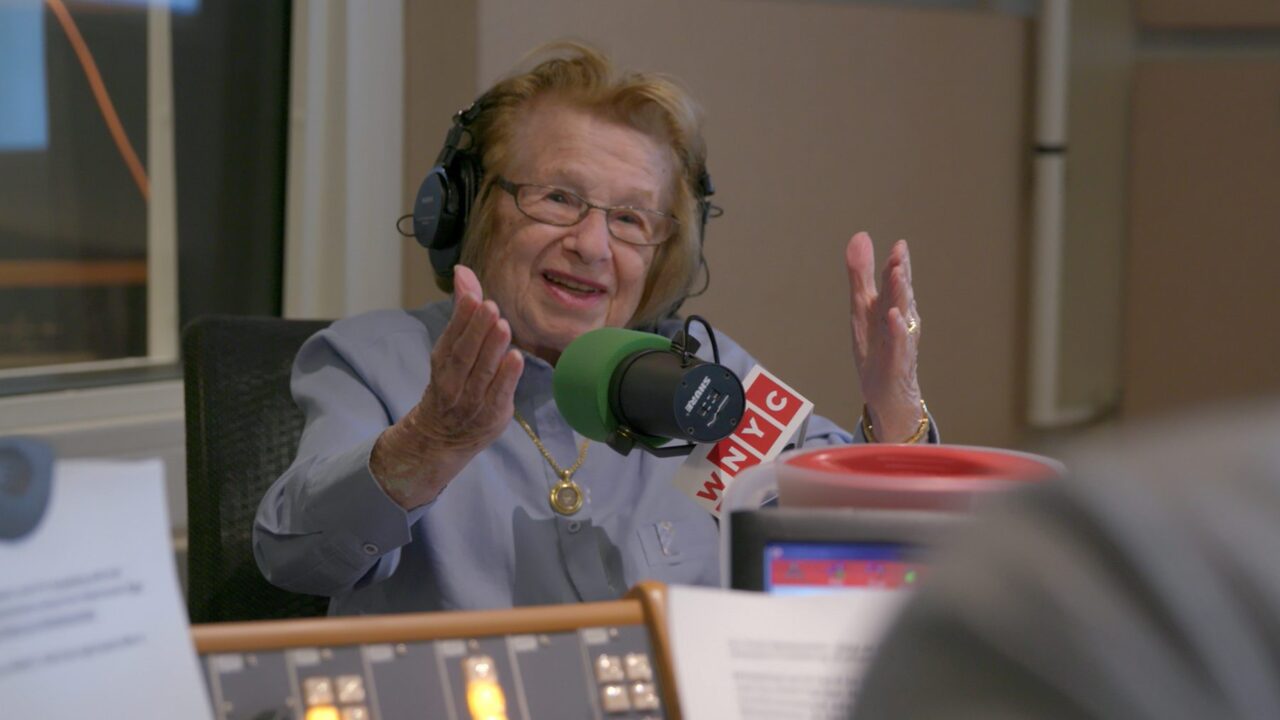‘Ask Dr. Ruth’ had its world premiere at the 2019 Sundance Film Festival and will be released online and in theaters by Hulu and Magnolia Pictures this May. Check out the trailer here. Here’s what you need to know.
Dr. Ruth Finds Decency in Indecent Times and Topics
Since the 1980s, Dr. Ruth Westheimer has been answering Americans’ most intimate questions. While some would label her work indecent, this new documentary about her life is a grand tribute to human decency. Through interviews, simple but expressive animations, and archival footage, Dr. Ruth chronicles ninety years of displacement, endurance, good humor, and implacable energy.
Dr. Ruth was a sensationally popular radio and television personality in the 1980s and 90s who brought sex positivity to audiences of millions. She was an improbable superstar. A 4’ 7’’ German-Jewish immigrant who was already well into middle-age when she hosted her first radio series, Sexually Speaking, Ruth had rarely sought or been offered the spotlight. In fact, she spent much of her life on the margins, persisting in face of complete uncertainty of what country she would live in, what education she could receive, and what, if any, of her family she would see again. As much as the documentary celebrates her storied career and advocacy for women, it is equally interested in documenting the full scope of her life, before those latter years of fame.
Although the film has a light hand about it, following the now elderly Ruth as she tours the globe, praises her grandchildren, and prepares yet more books for publication, there’s an obvious interest in documenting the historical lessons of Ruth’s life. Particularly, the way Ruth’s experience of the Holocaust informed her refusal to dehumanize gay men during the AIDS crisis, modern refugees seeking asylum in America, or other groups marginalized by those in power.
A Simple but Stylish Journey Through 90 Years of Striving
Born to a Jewish family in 1928 in Frankfurt, Germany, Ruth was an immigrant and refugee who escaped the Nazi genocide. Ruth does not self-identify as a survivor because, unlike her murdered family, she avoided the camps. This was thanks to a school in Switzerland where Ruth, the child of a loving family who valued education, was given a chance at survival by serving as a maid. Ruth lived as a second-class citizen through her childhood and teenage years in this Alpine town, saving and preserving each letter she received from her family trapped in Germany.
The painterly animations the film uses to portray this era are simple and largely still, but have a transporting effect, providing some idea of the landscapes young Ruth found herself in while allowing us time to ponder and imagine her world as Ruth’s voice-over, often drawn from letters written in her childhood, recounts the events.
Refugee, Scholar, Soldier, Star
Both lively and mournful, the film captures Ruth’s first loves, marriages, time as a soldier in Israel, single motherhood, and boundless commitment to education. After receiving abbreviated schooling in Switzerland, Ruth studied at the Sorbonne, which had special accommodations for those who had missed years of education due to WWII. She then earned her master’s in Sociology at Columbia University and worked at Planned Parenthood. All were experiences which paved the way for her eventual career as a sex therapist and radio expert.
Like RBG and Won’t You Be My Neighbor before it, Dr. Ruth slots comfortably into the popular trend of earnest documentaries that tell you about a person who persisted and found a place to express their humanistic ideals. There is a fierce hunger for this kind of fundamentally nice film, and this will be a welcome addition for Baby Boomers nostalgic for the sound Dr. Ruth’s frank, non-judgmental, German-accented advice. It should also reach younger generations curious about how a WWII-era refugee remade herself into one of the many founding voices in the sex-positive conversations that abound today.
Kailee Andrews
Kailee holds a Communication Arts B.A. from the University of Wisconsin. At 21, she programmed her first film festival for an audience of 4,000+ on campus. Since then, it's been all about sharing the cool arts and crafts of cinema.

